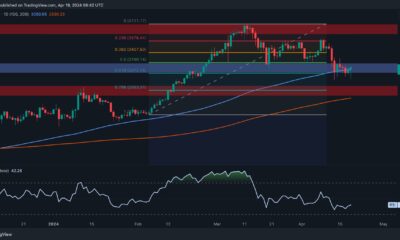Consensys has taken legal action against the U.S. Securities and Exchange Commission (SEC).
The lawsuit, filed on Thursday, aims to stop an impending SEC crackdown on Consensys’ MetaMask wallet and seeks a crucial ruling on the classification of Ethereum’s native token, Ether.
Consensys Challenges SEC’s Stance
The filing asserted, “The U.S. Securities and Exchange Commission’s (SEC) threatened regulation of Ether as a security would jeopardize the United States’ ability to use Ethereum and similar blockchain technology.”
Consensys is pushing for a federal court declaration affirming that Ether is not a security. It argues that any investigation based on ETH being a security would violate the company’s Fifth Amendment rights and the Administrative Procedures Act.
The lawsuit also seeks to clarify that MetaMask, Consensys’ wallet product, does not function as a broker under federal law, and its staking service does not break securities laws.
Consensys received a Wells notice from the SEC on April 10, indicating the SEC’s intent to pursue enforcement action against the company for alleged violations of securities laws through its MetaMask wallet product. The complaint also references the SEC’s prior stance on Ethereum, citing former director Bill Hinman’s 2018 speech, which classified Ether as a commodity.
Consensys highlights the SEC’s inconsistency in its approach and points to the Commodities Futures Trading Commission’s (CFTC) jurisdiction over Ethereum derivatives as further evidence of ETH’s commodity status.
It alleges that this shift constitutes an “about-face” that contradicts the Constitutional requirement of fair notice under the Due Process Clause.
Consensys also invokes the “major questions doctrine,” a legal principle that limits federal regulators from overstepping their Congressional mandates. The company warns of serious consequences for both the Ethereum network and Consensys should the SEC’s actions proceed unchecked.
Gensler’s Crypto Crackdown
The lawsuit against the agency comes amid SEC Chairman Gary Gensler’s aggressive crackdown on major crypto players, such as Coinbase and Uniswap.
Gensler’s approach has included issuing subpoenas to firms and developers for documents related to their interactions with the Ethereum Foundation, a nonprofit supporting the network’s development.
Critics within the crypto industry are angered by Gensler’s tactics. They argue that the SEC has not provided clear regulatory guidelines tailored to blockchain technology’s unique characteristics. Gensler denies these criticisms, asserting that existing securities laws are sufficient and blaming the crypto industry for non-compliance.
Consensys’ lawsuit, filed in the Northern District of Texas, aligns with similar preemptive legal actions taken by groups like the Blockchain Association and companies like Legit Exchange. Despite these legal actions, Gensler continues to pursue Ethereum’s staking feature as the basis for the SEC’s recent legal stance.
SPECIAL OFFER (Sponsored)
LIMITED OFFER 2024 for CryptoPotato readers at Bybit: Use this link to register and open a $500 BTC-USDT position on Bybit Exchange for free!

 Bitcoin2 years ago
Bitcoin2 years ago
 Bitcoin2 years ago
Bitcoin2 years ago
 Bitcoin2 years ago
Bitcoin2 years ago
 Bitcoin2 years ago
Bitcoin2 years ago
 Bitcoin2 years ago
Bitcoin2 years ago
 NFT3 years ago
NFT3 years ago
 Ethereum2 years ago
Ethereum2 years ago
 Bitcoin2 years ago
Bitcoin2 years ago













